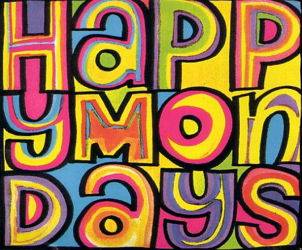*
An interview with John Ashbery. Hm. I always thought he had two Rs.
Guernica: Some of your early critics complained about your lack of political writing.John Ashbery: My feeling is that most political poetry is preaching to the choir, and that the people who are going to make the political changes in our lives are not the people who read poetry, unfortunately. Poetry not specifically aimed at political revolution, though, is beneficial in moving people toward that kind of action, as well as other kinds of action. A good poem makes me want to be active on as many fronts as possible.
Guernica: Can you elaborate on what you mean by that?
John Ashbery: Political poetry seldom achieves its goal since the people who should read it (presidents, politicians) don’t read poetry, and most of those who do are already persuaded of the truth of its messages (war is bad, government and industry are often corrupt, racism and other kinds of discrimination should be abolished, global warming is destroying the world, etc.) and might be annoyed at being lectured for wanting ideals they in fact possess. Non-didactic poetry, which seeks merely to delight (Keats’s sonnet about the grasshopper is a good example) can inspire readers to act humanely on many different levels, including the political one.
An interview with Ted Kooser, former US Poet Laureate, who "advocates accessible poetry."
An interview with Stephen Dunn. Who is, uh, Stephen Dunn.
Guernica: As you write, do you think about specific people reading specific poems that might have something to do with them?
Stephen Dunn: I certainly think about it. But I think, again, it has to do with motive. If the motive of writing is for some people a kind of exercise in dirty laundry, that’s one thing. I’ve always thought of my poems as meant to be overheard, as I think all of these poems are. It seems to me if you get experience right, even your most painful or humiliating experiences—if you get those experiences right for yourself and make discoveries as you go along and find for them some formal glue—they will be poems for others.
It seems to me that no matter how perverse or private you might think your attitudes are about anything, if you speak them well there’ll always be a few others nodding. My best experiences with literature as a reader have been when something that I thought was freaky about myself, or something odd or private that I hadn’t told anybody, got articulated or enacted in a poem or story or a novel. It simply brings us into the human fold. Literature at its best is communal in that way. And as much as these poems were written out of a certain personal urgency, I’m always conscious of myself as a maker of poems, thus to some degree a fictionist.
Hello.

No comments:
Post a Comment